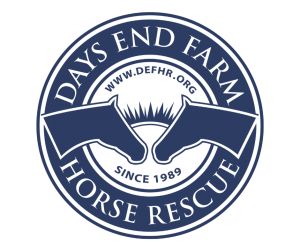
Summer is in full-swing! Earlier this year we worked with Dr. Radue to make sure you are equipped with the best tips for helping your horses in the heat, but we all know that by August, summer spells one thing for horses: bugs.
We’ve collected tips and tricks to make your equines as comfortable as possible. Do you have any favorites?
Email us and let us know!
• Identify the Enemy: Your bug battle strategy depends on what bugs are bugging your horses. Usually what we find in barns are house flies and stable flies, as well as horse and deer flies, bot flies, black flies, and even mosquitoes.
• Tactics for handling the bug population: For all bug issues, a 2-pronged attack is essential. Step 1 is to eliminate their breeding grounds. Step 2 is to protect your horse, or horses, from those insects that are still around. Pests spend only 5% of their time physically on your horse, so it’s essential to implement environmental changes.

Step 1: Eliminate their breeding grounds
• Think about fly and mosquito control for the environment around your horse, as well as on your horse. Since a fly is off the horse approximately 95% of the time, controlling flies in the horse’s environment may require residual insecticides, baits, fly predators, foggers, and sprays applied at frequent intervals.
• Residual insecticides can be applied to surfaces where the fly rests when off the horse. The fly droppings that appear as brown specks can identify these fly-rest areas. to help guide you on where to apply the insecticide.
• Be sure to pick out manure daily to reduce fly numbers in stalls and the barn, the barn, and run-in sheds. Encourage birds such as purple martins and barn swallows, who eat many mosquitoes and flies every day.
• If you have ponds, think about stocking them with damselflies and dragonflies that consume mosquito larvae. Fat head minnows or other baitfish will also help to clean up mosquito larvae in your pond. Dump water buckets, tanks, and troughs daily if you have standing (not running) water to reduce the development of larvae. Consider installing a fountain in nearby ponds to help decrease mosquitoes.

• Take stock of their environment and what types of pests you’re dealing with. Many insect pests are at their peak activity during daylight hours, when temperatures are warmest. For horses turned out during the day this can only mean a day of frustration as they shake their heads, stomp their feet, and swish their tails to dislodge the biting insects. A nighttime turnout may be beneficial if your horse spends all day stomping, but mosquitoes can be deadly and just as painful as flies. Fly spray the horse who goes out at night, just like you would for daytime turn out.
• Spray-on fly repellents can be very effective as long as they are used as directed on the label. Don’t hesitate to try a variety of sprays or to to switch brands occasionally, as well as paying close attention to any allergic reaction they may cause. Flies do seem to develop a tolerance for various sprays after a period of time. Natural recipes using essential oils may work as well,. t There are many recipes online-, but be sure to spot -test for reactions.
• There are important summertime health concerns to consider as well. Eastern & Western Equine Encephalomyelitis and West Nile Virus are all “summer diseases”, usually showing up in August or September. A vaccine booster in July may be the ideal timing to keep these potentially fatal diseases at bay. Since these are mosquito-spread illnesses, mosquito control will also help to keep your horse safe.
• Horses seem to find ways to injure themselves out on pasture in the summer, so be sure your horse is updated on its Tetanus vaccination. If your horse sustains a deep laceration or puncture wound, make sure they were vaccinated for Tetanus within the past six months. If not, a booster may be warranted. Inquisitive horses may snuffle wildlife, like rabid skunks, out in the fields, so Rabies vaccinations should be updated on a yearly basis. If possible, also do a quick check of your horse daily for scrapes or cuts from wild pasture play. Have a wound spray or ointment on-hand for infection and to keep flies away.
Enjoy the rest of the summer with your horse and
don’t forget some bug spray for yourself!

